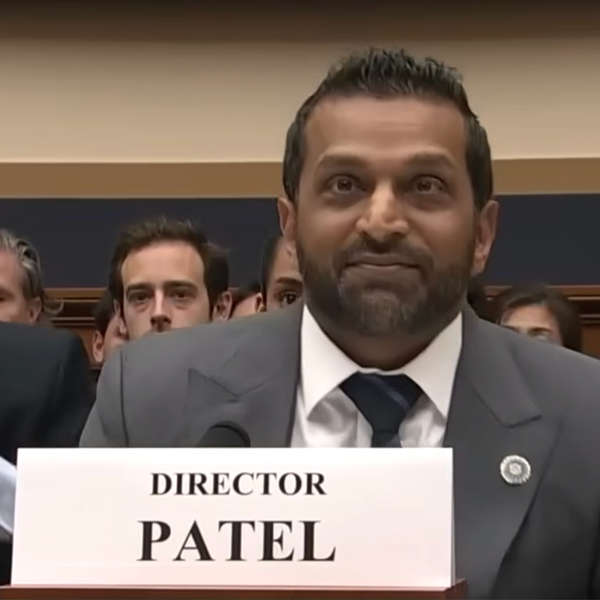Power Grab: How Georgia Republicans Aim To Overrule Local Elections

Deborah Gonzalez
A new wave of power grabs by Georgia’s Republican legislators is threatening to wrest control of key local government bodies where Democrats, often people of color, have recently been elected and currently hold governing majorities.
The Republican moves are an effort to consolidate political control after passing sweeping legislation in 2021 that limited popular early voting options, and allowed state officials to oust county election officials and possibly overturn results.
The latest power grabs are occurring under the umbrella of reconfiguring political districts after the 2020 census, and they target county commissions, school boards and prosecutors in the metro-Atlanta region and other areas where recent elections have left Republicans as political minorities.
“They are not waiting for the [next] election,” said Richard Rose, Atlanta NAACP president. “That’s not quick enough for the powers that run Georgia.”
“They used to believe in local control,” said Helen Butler, a civil rights activist who was purged from Morgan County’s Board of Elections by GOP legislation passed in 2021. “The legislature is now coming in and saying, ‘we don’t like the maps that local people put together,’ and they’re drawing their own maps… They want total control.”
Legislation that is now moving forward includes Republican-drawn maps for county commissions in several metro-Atlanta counties, where numerous elected Democrats, who are Black, say they are being targeted for replacement by Republicans, who are white. In one of those counties, Gwinnett, home to the state’s largest school district and most diverse demographics, a bill would make its school board elections nonpartisan—masking a candidate’s party—and reschedule the election months before November, when voter turnout is lower.
The school board’s new chair, Tarece Johnson, speaking at a statehouse press conference on January 27, said the Senate-passed legislation was “targeting people of color and attempting to suppress the vote, erase their historical truths and censor diverse perspectives.” Republicans pressing for the change have attacked the board’s leadership, which only recently changed to control by elected Democrats, as incompetent.
That same charge, of managerial incompetence, has been used to justify legislation that passed in 2021 to remove local election officials, such as in Spalding County on Atlanta’s outskirts. It is also the rationale of another bill that would allow a newly created state panel to fire elected prosecutors, which is the latest development in a GOP effort to unseat Deborah Gonzalez, the state’s first Latina district attorney, who won after pledging to ignore low-level drug offenses.
“It was a very progressive platform, and I was very vocal about wanting to run to address systemic racism,” Gonzalez told the Marshall Project, a media outlet covering the justice system.
County-level partisan targeting often escapes coverage by national media. In Georgia, however, a national battleground state where demographic changes have evenly divided its electorate, the Republican takeover attempts follow 2021 legislation that rolled back early in-person and mail-based voting options, and empowered a GOP-run state board to purge election officials in eight counties. Voting rights advocates fear 2021’s legislation could set the stage for overturning election results. The latest power grabs worry but do not surprise advocates.
“We are hearing more and more that the worst abuses, the worst discriminatory redistricting and gerrymandering is playing out at the local level,” said Yurij Rudensky, a redistricting counsel at the Brennan Center for Justice at New York University School of Law. “This is becoming an increasing concern in states that were formerly covered by [preclearance in] Section 5 of the Voting Rights Act. This is the first redistricting cycle to occur without those protections.”
“In decades past, all of these sorts of changes, whether it is where district lines fall or the size of local governing bodies, county school boards, city councils, et cetera, would be assessed [by federal officials in Washington] for their tendency to diminish the influence of communities of color,” he said. “And there was certainly a deterrent effect because a legislature like Georgia’s legislature would know that what they were doing would have to pass muster.”
But outside of the Atlanta-based policy and activist circles that are tracking the power grabs, many Georgia voters are not yet aware of the Republicans’ latest moves, said Julius Johnson, who runs a democracy center in rural Hawkinsville—in mid-Georgia—that includes a food bank, meeting space, Black history museum and library, and hosts voter drives.
“Typically, locally, people don’t realize the importance of the local elections,” said Johnson, a Democrat who lost a 2020 bid for the state Senate. “We have to articulate very clearly what’s happening here—‘Here is the Republican strategy to get these people in at the local levels’—so that we can get people to step up their game with participation and keep people voting.”
Many Democrats have described the latest GOP moves as the latest structural racism in Georgia politics. The bills to redraw local districts, change who serves on local boards, alter the timing of local elections, and expand ways to unseat locally elected officials are seen by these officials as imposing rules that will steepen the path for people of color to hold majority power. The latest bills come after Republicans in 2021 reversed policies that made early voting easier.
“They’re leveraging their power wherever they happen to have it,” said Ray McClendon, Atlanta NAACP political action chair. “If you look at all of these [voting] changes, it is not to take us back to Jim Crow where you have to count jellybeans in a jar to vote. All they need to do is just take off three, four, or five percent of voter turnout and they will accomplish what they want.”
McClendon said that the GOP’s 2021 election reforms were designed to discourage voting and disqualify votes cast early—which is when many working-class Georgians prefer to vote. Unlike the aftermath of the 2020 election when Donald Trump pressured top state officials to “find” enough votes for him to win, McClendon said the GOP’s strategy is for local officials to winnow votes.
“The combination of all of these [rule] changes on the mail-in ballot, no longer being able to have Sunday voting in certain cases because they stacked local election boards, the narrowing of the dates for early voting, the cutting back on the number of voting locations and drop boxes—they don’t sound like they are onerous provisions individually,” McClendon explained. “But when you take them collectively, and you take the fact that every one of these is in a state that is purple, these are steps that are intended to ensure minority rule.”
Data suggests McClendon’s analysis is correct. In November 2021’s municipal elections, the number of rejected absentee ballots increased 45-fold when compared to the percentage that were rejected in November 2020’s presidential election. The GOP’s 2021 law required that all ballot applications and returned ballots be accompanied by a photocopy of a voter’s ID.
Republicans, notably, have rejected the accusations of racism surrounding their voting reforms and county gerrymanders as “ugly” and “baseless.” They have defended their bills as efforts to make local government more representative, especially in parts of Atlanta where whites may now be in the political minority. (GOP sections of the city have repeatedly tried to secede.)
“I do believe that all of the communities in our county matter,” Rep. Bonnie Rich, R-Suwanee, whose map redrawing county commissioner districts in Gwinnett County passed her chamber, told the Atlanta Journal-Constitution. “That is why I drew lines that represent those distinct communities.”
Rep. Houston Gaines, a Republican who represents a portion of Athens, a city about 70 miles east of Atlanta, told the newspaper that the legislature-imposed maps “protect the voice of every Athenian… [thus] ensuring greater opportunities for minority communities.”
Critics like the NAACP’s Rose say that rhetoric—portraying white Republicans as victims of discrimination after losing to people of color—is offensive. It also masks what is unfolding.
“It is a complete overhaul of the system that we know of,” Rose said. “They have to make sure that they control the elections, that they control the counting, that they control how absentee ballots are processed… And, in some counties, like Gwinnett, for example, where the county commission is all Democratic, they now want to change that. They want to change the school board… They feel they must change it if it does not allow them to maintain power.”
Georgia’s 2022 Primaries
There are many signs that Georgia’s upcoming primaries on May 24 will be chaotic for election officials, candidates, campaigns, and groups urging voters to turn out. The ballot will feature each party’s nominees for federal, state, and local office, including local judgeships. In short, the legislature’s election law and voting rule changes (and federal redistricting litigation) have left many issues unresolved, which makes it harder to inform voters about what will affect them.
In August 2021, the Georgia Association of Voter Registrars and Election Officials (GAVREO) passed a resolution in which they “implore[d]” the legislature to postpone 2022’s primary from May to June, because the officials needed time to make “complicated redistricting changes,” such as finalizing maps, allocating resources and related planning before candidates could file to run for office.
GAVREO’s plea was ignored, just as, several months before, a handful of counties with Black election officials (administrators and policymakers) were “blind-sided” when their lobbyists discovered that GOP legislators were drafting bills to fire them (by requiring they live in the county) or to purge election board members (who were Democrats), according to emails obtained by American Oversight, a progressive law group that has used public document requests to expose numerous anti-democratic effort by pro-Trump Republicans.
All of Georgia’s 159 counties are affected by the post-2020 legislation. But the counties that have been additionally targeted in specific legislation have notable populations of color. As a result, organizers like the NAACP’s McClendon or Helen Butler, who is executive director of the Georgia Coalition for the People’s Agenda, a civil rights group, have been scrambling to track the changes to help voters chart a path through what she says is intentional chaos.
“They’re throwing so much stuff at us that we just have to put things in place,” Butler said. “Our ‘Democracy Squads’ monitor boards of elections to see what they’re planning on doing with regards to the vote… We send people to meetings. We get their minutes. We basically try to get people to report to us in real time so that we know what’s going on.”
“The chaos is real,” McClendon said. “It builds on what they are already doing to marginalize a percentage of voters. They are creating so many whack-a-mole situations that all we are doing as activists is trying to beat down one thing after another and then another thing pops us.”
In the meantime, the NAACP and its allies from the 2020 campaign—which include professional associations in communities of color and data-driven grassroots campaign experts—are looking to revive those networks and stand up “democracy centers” across the state, so that ordinary Georgians have trusted sources for addressing local needs, including voting.
“We have talked about the issues to raise, and one has to be true patriotism,” Rose said. “You cannot support the insurrection of January 6, and if you’re a veteran you cannot support the Confederacy… We’re also going to talk about bread-and-butter issues like Medicaid expansion, because rural hospitals are closing. And education, because the GOP is losing its mind over critical race theory, which has never been taught in public schools.”
But while Rose is looking to reactivate the grassroots networks that led Georgia to elect a Democratic presidential candidate and two Democratic U.S. senators in 2020, the Republican-run state legislature is seeking to reconfigure state and county election districts and boards in Georgia’s blue epicenters—by finding ways to oust popularly elected representatives.
“It’s untethering policymaking from public will and from voter preference in response to changing demographics and the political changes and policy preferences changes that go along with that,” said the Brennan Center’s Rudensky. “It’s very concerning because it really cuts to the heart of what our system is supposed to be about.”
This article was produced by Voting Booth, a project of the Independent Media Institute.
Steven Rosenfeld is the editor and chief correspondent of Voting Booth, a project of the Independent Media Institute. He has reported for National Public Radio, Marketplace, and Christian Science Monitor Radio, as well as a wide range of progressive publications including Salon, AlterNet, The American Prospect, and many others.








